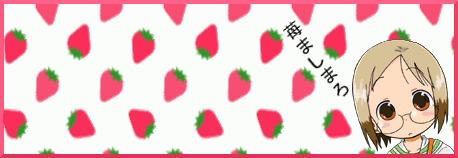I think we are getting off track. My original point was is that subtle differences can cause great change in meaning.
Again, I think you are forgetting the context I am speaking from. Learning from a textbook in a classroom with an instructor using a textbook is different from self-teaching with a textbook. I am talking about a classroom learning with an instructor who is fluent in the language if not a native speaker. BIG DIFFERENCE between just teaching yourself with a textbook, which I had stated above should be complimented by exposure to the language.
To make my point about manga, I will give an example of my friend who is currently in Japanese class. For the purpose of this example, we will call her Jade (not her real name but true story). Now Jade read a lot of manga in Japanese, she was fortunate enough to have went to Japan and bought some in Japanese. Now the thing is Jade, when coming to university, wanted to take Japanese class. The thing is during her first year, she knew a lot of kanji but not a lot of grammar so she had to take a special class her first semester with the first level sensei to fill in the gap. Evidentially, manga doesn't give you everything. Yes, there is a wide variety of manga you can get set in different times but it does not change my point that all you are learning is dialogue--for the most part. I mean you can go import Murakami Haruhi but considering the learning curve you would have to be a masochist not to be disheartened.
I also have someone who knows how to speak Japanese but could not write it well. Though this point was not clear, I was hinting at the fact that writing and speaking are two different activities that overlap but an ability in one does not presuppose an ability in another.
There is a distinct difference between understanding the grammar and merely knowing the grammar, which is was my point. Take English. Most native English speakers could not tell you what an object of a verb is, let alone whether or not it is indirect or direct. Before I go further, I will draw a distinction. Language acquisition for a child is different than that for an adult. A child's mind is much more receptive and sponge like and will absorb the language and grammar without any conscious awareness of it. It is the same principle by which I acquired French. I was exposed to it since the age of 5. A larger portion of a education was in French, and I received little formal teaching in the language (which is why my writing skills in French tend to suffer), however I can perfectly understand someone speaking French and read with ease. Same thing for any native English-speaker. We can all talk with relative ease as well as read, but many people have not mastered the written language.
Returning to my comment of an object of a verb. Object is merely one syntactical term to referring to the noun or phrase to which is the agent of the verb or recipient of the verb. A similar example of syntax is the difference between nominative and predicate positions of adjectives. By reading "He has blue eyes" and "His eyes are blue" you can see the difference between the two and if you think about it for a second, you can get the nuance. But most people, who have not studied another language, syntax/linguistic nor have a formal education in English grammar, would not be able to explain that the difference is that in the first sentence the subject is "He" and the adjective is in the nominative position. The second sentence's subject can be reduce to "his eyes" and the adjective is in the predicate position. I could rake my brain for more examples but I think I have been clear. To simply understand grammar is quite a different thing from knowing the grammar. I think it is important to note, that I only came to understand grammar and syntax(for the most part) in such a manner once I started studying Ancient/Attic Greek (that lasted a year and sorta lost in the recess of my mind) and now Japanese.
Either scroll up to an earlier post or to the beginning of this post. To remind you, I never said that it is good to learn from a textbook alone. However, I never stated that it is good to learn by exposure alone either. Again, my references have been to classrooms where both textbooks and exposure is offered (especially at higher levels and with good sensei).Its good to learn how to read Japanese and learn the function of particles before you dive into a manga or a conversation in Japanese, but if you rely solely on a textbook anywhere after that you won't make any real progress.
Not to sound like a broken record, but not once have I stated that you should learn by textbook only or that you cannot learn by exposure/immersion. I expressed that both have their limitations and that they should be used together, in concert, to fully appreciate the language. Moreover, a classroom setting, assuming it is a good one, incorporates both of these factors into it. It offers the knowledge as well as the practise and examples in various contexts to support the knowledge.




 Reply With Quote
Reply With Quote





